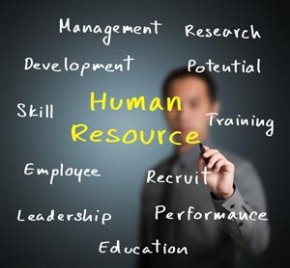
Good morning Human Resources professionals and hiring panel! Did a tablespoon of racist get stirred into your coffee this morning? Today’s harrowing story is Rodriguez vs. Roberts in the office and the interview. While most of us are aware that many people accompany their morning java with a side of judgement cake and vindictive shots (“Who the hell gave Bob the right to have the corner office!?”) the racist sweetener in the coffee seems to bypass us all as invisible as the addictive qualities in Starbucks coffee. So remember the next few detailed reports and take heed in interviews and annual reviews. You are being judged by your name and appearance. Don’t act so surprised.
1) Rodriguez vs Roberts. Stats show that when sending out resumes of equally varying education, work experience, and qualifications, it takes 15+ applications to get a call back for Rodriguez while only 10 applications or less for Roberts. Now, why would that be? A lot of the stat reports say that there is a strong association between foreign names with blue collar, low income, under educated, and less ambitious applicants. Whereas names that are traditionally Anglo-saxon such as Roberts, are looked upon more favorably as successful, accomplished, educated, ambitious, and come from a higher socioeconomic standing. I have a sneaking suspicion the Gaglardi’s and Lalji family of Vancouver may differ on judging a name by cultural heritage and back it with their billion dollar worth. However, unfortunately the stats are showing today’s professionals skip the Jamal’s with a Masters degree and call back the Jane’s with a bachelor’s. My personal suspicion is the people who are taking their coffee this way are undereducated themselves and lack sociopolitical intelligence in addition to having low self esteem and other complex’s. Some of you may be reading this and be wondering, what does low self esteem have to do with this? Well, let me tell you. Some individuals who feel poorly about themselves (this is not a person who is into pity parties, or someone who is even aware they feel poorly about themselves, hell, it may only be in 3 key areas) may feel bad about how far they’ve come in life, so then they read a name of another culture, of someone who is better educated than them, or perhaps has more experience than them, and this triggers jealousy and resentment from the person reviewing the applicant. They subconsciously take it personally and make the decision that this person has no right applying for this position, or getting that promotion. Simply that they have, “Come as far as they can and ever will.” Ever wonder why your boss is a raging idiot and how the f** did they get the job??? They were most likely promoted by someone who had a huge complex and did not have education (again, I don’t care if you have a PhD, if you have not done self work through your education, it’s a piece of paper until you prove otherwise by being awesome at what you do) to foresee the problems it could cause down the road. This person didn’t see them as a threat, more likely a joke who would get hauled up later. This is why promotions are dangerous, so much is based on matching dysfunctions and complex’s. Granted not all promotions operate this way, but it takes a soapy clean agency not to. I have to be honest with you, I’m not gonna promote Ginny because she has a masters degree, even if I love her- I’m going to promote her because she won’t give me guff, can do the job, is manageable, and won’t compete with me and gun for my job. (FYI for those of you gunning for a promo, look like your accidently smart and initiative just happens to fall into your lap- that way no one takes it personally or like you’re competing with them.)
Some agencies CSO, CAO, COO, will actually take the lead themselves to ask employees to change their “work name” to fit in, be more “accommodating” and “approachable”. The Jose’s become Josh or John, the Juanita’s become Janna, Jane, or Jen, and the Rafael becomes Ray, and so forth. I am guilty of having a work name myself, I use my middle name from the Welsh side of my family rather than the other. And yes, sadly, this gets me more interviews, and less racial slurs than my other name…
2) Fat vs. Skinny. I absolutely abhor these labels. I think I fall into the fat category as a size 12. Odd, I think I’m average, however there a slew of people who read a few good books and the latest issue of GQ to disagree with me with what domesticated impoverished opinion they call “educated”. No, no, I’m sorry, I don’t care what the Oprah book club taught you, or how Dr. Oz preached about thin for good health let me educate you in the world of assessment where CSO’s, CEO’s, and CAO’s pick up on these cues compared to average management in less ambitious roles. Let’s examine them and let me encourage you- google some multi-millionaires, CEO’s, and big cheese’s and really take a good look at what they look like (Please watch the first episode of Dragon’s Den). Most are average to a bit over weight, they have good hair, good skin, a decent wardrobe (pretty corporate generally), they tend to not even whiten their teeth (check, Jimmy Pattison), and they have strong family ties and do less partying and fear the no gluten diet.
a) Weight – sizes 0-8; The Average Management: successful, ambitious, vain, smart; The CSO: insecure, competitive, ego driven, fake.
b) Weight sizes 8-14; The Average Management: lazy, unmotivated, average intelligence, will do grunt work, competitive, over compensating; The CSO: ambitious, comfortable, settled, mature, humble, hard worker, trustworthy.
c) Weight sizes 14 +; The Average Management: lazy, untrustworthy, secretive, jealous, low inteligence; The CSO: average intelligence, “too-settled”, secretive, insecure, polar personality (will either be a very hard worker, or not at all), waste company time.
These are very interesting evaluations taught in business, social work, strategy, consulting, and personality profiling. The most intriguing part of the training is only social work and some courses in personality profiling actually touch base on how to tell if some one is “faking” the skinny, for example, are they drugging, alcoholing, perhaps it was a birth defect, addictions, or are they naturally slim?- look at their wrists, neck, collar bone structure, and finger alignment. What if they are over weight? It could be from medications for health, drugging, alcoholing, addictions, trauma, or is it natural? Look at their ankles, eyes, temples, neck, belly to width ratio, and skin colour (hint, long time marijuana users have a slight grey tinge to their skin despite ethnicity). So, for example if you are on the hiring panel and interview a woman who is over weight and you just read an article in random girly magazine that battered women tend to gain weight unintentionally as it is the body’s way of protecting its organs with fatty tissue for safety- would you assume that this woman has been battered? NO! You are not qualified or have the education to determine any of that. What if I countered what you read by saying they also lose a tremendous amount of weight unintentionally as the body is preparing for flight and in addition constant stressors can burn calories as adrenaline is constantly making the body work harder. Not so sure about that first theory now huh? Well, the person interviewing you didn’t know all that. F****.
3) Glasses vs No Glasses. I wear fake glasses. Don’t judge me. With a $80k salary job and 6 weeks holiday you’d wear fake glasses too. I don’t wear them all the time, just during interviews and key meetings. Stats show that glasses are associated with “book worms” and “geeks” who have been the victim’s of media fronting them as super intelligent with high IQ’s, critical thinking techniques, an inability to get caught up in office gossip, trustworthy, reliable, and good with money. So the next time you go into an interview, sport some four eyes and win ’em over.
4) Marriage & Children. If anyone asks, you are in a long term relationship (or married), and you want children (or actually do have kids). For some reason there is a lot of discrimination against those of us who are slow to marry and do not want children. NEWS FLASH, infidelity and divorce lessen the closer to age 40 you get married. Don’t believe me?- look up the stats with StatsCanada, BCASW, and published psychology journals. This doesn’t mean to say because you got married at 18 you or your spouse will have an affair, no, not at all, it just means because your brain does not fully develop until you are 30 means you have a higher chance of choosing a more successful partner. Also, you will have settled in your personality and worked out more of your issues so you are not as likely to leave over a spat, and you will be more critical and know when to disagree and actually fight it out. I think most people see marriage and children as a milestone of happiness they would like everyone to see. My buddy thinks anal sex is happiness, but I don’t. He respects that and doesn’t think any less of me. That’s a bit of a contrast to the subject huh? Not really. Your decisions in the bedroom are as valuable as your decisions in the public eye. Why?- because each and every one of us is valuable and has the right to do what’s best for them. If you don’t want to be a parent, then you know for sure, I got your back. If being a parent is the fulfillment goal of your life, I also got your back. I’d rather you make the decision (even if you change your mind or always wonder, or never wonder) than be luke warm and undecided and never arrive at a decision. But, on that note, if you make the decision to be okay with whatever happens, more power to you. Unfortunately, the hiring panel may not see it that way. Often people who are married, or in committed relationships are seen as grounded, trustworthy, family oriented “family values”, ethical (did someone forget rapists have children too?), hard working, goal oriented, honourable and virtuous. People who keep themselves “attractive” or polished, and are single with no kids are seen as promiscuous, threatening, enjoy sexually frustrating others, need to be put in their place, care free, critical, more educated but contrasted with lesser intelligence, honest but hard edged, and so forth. It is as if single people are judged for having the wrong ambitions and goals in life. Oh well, tell me that when I’m CEO, and we’ll see ;) Oh right, those were MY ambitions, not YOURS. Case proven.
If you do not fit into any of the above criticisms, stereotypes, or discriminatory references then I greatly applaud you! Please keep doing what you’re doing! If you have been successful with your own name, please keep using it! You are building a pathway for those who cannot, and opening doors for the future. I understand that some of you may not have even heard of this before, please google it! You will see how common it is both in blogger articles and accredited articles. For the rest of you, hang in there. Work is a cactus, thorny, dry, and casting an awkward shadow over your path- but remember that shadows don’t last forever and once you cut through the thorns, there is some nectar of wisdom to be found in the cut and the strategy used to overcome the prickles of the work environment. Good night and good luck!
 Senior management, or those who have seen it all- please feel free to chime in on this one. You may have read in a previous statement I made on this blog, that I am currently working with a company doing a 40% overhaul. This is one of the smaller overhaul’s I have worked with. The largest was 80%. As experienced managers know, this kind of drastic change in a company requires your full attention and you end up working close to-but not quite- around the clock. These are the primary reasons for the current overhaul at a glance:
Senior management, or those who have seen it all- please feel free to chime in on this one. You may have read in a previous statement I made on this blog, that I am currently working with a company doing a 40% overhaul. This is one of the smaller overhaul’s I have worked with. The largest was 80%. As experienced managers know, this kind of drastic change in a company requires your full attention and you end up working close to-but not quite- around the clock. These are the primary reasons for the current overhaul at a glance:



